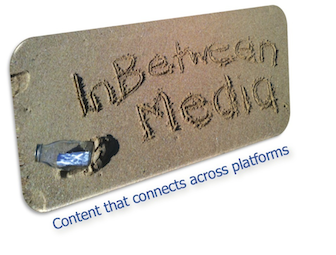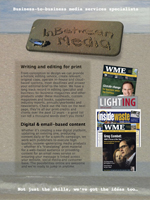 Research tells us that one in every four marketing dollars is spent on a content marketing initiative, however it also shows that only a small percentage of organisations have a concrete strategy for the deployment of those content assets. Put simply it’s like building a house with no architectural plans.
Research tells us that one in every four marketing dollars is spent on a content marketing initiative, however it also shows that only a small percentage of organisations have a concrete strategy for the deployment of those content assets. Put simply it’s like building a house with no architectural plans.
Often marketers cite “creating content” as one of their biggest challenges. But in reality they’re not using the content they have to their best advantage. To do this you need a strategy that tells you how much content you require, the product and service areas you wish to promote, the audiences you wish to attract and the targeted search keyword phrases.
Importantly your plan will provide a calendar to schedule the production and promotion of content, which is available to everyone in your organisation involved in content creation.
Like publishers, content marketers must have a detailed picture of their target audience in order to create optimal content for them. In developing different personas or audience segments that characterise your range of prospective customers, it’s helpful to find out:
What is their demographic information?
What do you help them solve?
What do they value most?
What are their goals?
Where do they go for information?
What experience are they looking for when seeking out your products or services?
What are their most common objections to your product or service?
How should you describe your solution to this persona?
Taking content inventory
Taking stock of your existing content will help you find holes that you can fill with new content, or identify where you may be writing about some subjects more frequently than others, as well as which topics generate the best results and reader interest.
Another key aspect of a content marketing plan is to identify the types of content and channels that work best for each stage of the buying cycle.
While your prospects may traverse a range of channels related to your brands or products, marketing studies have shown that certain types of content play particularly important roles at specific stages of the decision-making process or buying process.
Most of the visitors to your website will be in the “research” part of their buying process and are looking for content to help them understand their problem. Once they have done their research, they’ll start comparing the options available to them. Once they’ve narrowed down their options, they will want to compare the providers.
This is what we mean when we say they are moving through their buying process or buying cycle. Say you identify three key stages of the buying cycle – initial, middle and closing – your choice of content will be tailored to the needs of the buyer dependent on where they are in the cycle.
Once you have identified all the segments, products and services you need to target with your content marketing plan, it’s time to start producing content.
Promotion: Get your free 20-page content marketing guide for writers
Are you interested in improving your search engine rankings, driving more traffic to your website and generating quality leads? In other words, attracting more people to your organisation with whom you want to ‘do business’? Then our free content marketing guide for writers will help you get there. It also gives you tips on keeping the creative output flowing, which means the content keeps coming, whether you’re outsourcing the job or managing your own.
To mark the launch of InBetween Media’s new website, we are offering all those who sign up for our occasional blog updates, a free copy of the eBook.
The blog from InBetween Media features original writing that includes journalism, blogging, news and links to other online resources that would be helpful to those working in media, marketing and business sustainability.
To receive a notification via email when the blog is updated and to download your free eBook on content marketing for writers, just provide your name and email address.
Complete your name and email to receive blog update notifications
This following document sets forth the Privacy Policy for InBetween Media, www.inbetweenmedia.com.au
Collection of your personal information
There are many aspects of the site that can be viewed without providing personal information, however, for access to certain elements of the site you are required to submit information. This may include but is not limited to your name, email address, a unique username and password, or sensitive information for the recovery of your lost password.
Sharing of your personal information
All personal information collected at the site is kept strictly confidential and is not accessible by third parties.
InBetween Media keeps records of customer details collected through enquiries in order to assist in providing relevant and additional information updates if and when they occur. Individuals may at any time request to be removed from the database by contacting InBetween Media by phone or email.
InBetween Media takes reasonable steps to ensure that any personal information is protected from misuse.
Use of information
For each visitor to reach the site, we collect the following non-personally identifiable information, including but not limited to browser type, version and language, operating system, pages viewed while browsing the site, page access times and referring website address. This collected information is used solely internally for the purpose of gauging visitor traffic, trends and delivering personalised content to you while you are at this site.
From time to time, we may use customer information for new, unanticipated uses not previously disclosed in our privacy notice. If our information practices change at some time in the future we will use for these new purposes only, data collected from the time of the policy change forward will adhere to our updated practices.
Changes to this Privacy Policy
InBetween Media reserves the right to make amendments to this Privacy Policy at any time. If you have objections to the Privacy Policy, you should not access or use the site.
Accessing Your Personal Information
You have a right to access your personal information, subject to exceptions allowed by law. If you would like to do so, please let us know. You may be required to put your request in writing for security reasons. InBetween Media reserves the right to charge a fee for searching for, and providing access to, your information on a per request basis.
Contacting us
InBetween Media welcomes your comments regarding this Privacy Policy. If you have any questions about this Privacy Policy and would like further information, please contact us by any of the following means during business hours Monday to Friday.
Phone: (+61) 404 088 501
Email: editor[at]inbetweenmedia.com.au



Comments are closed.